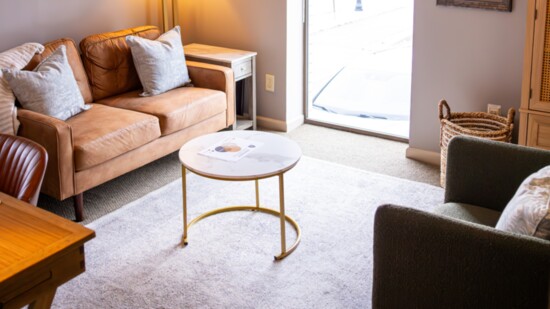The “winter blues” can be common among Midwesterners.
According to Kayla Beier, owner of Endurance Mental Health in Carmel, the shorter days and fewer hours of sunlight in winter disrupt our normal Circadian rhythms. This causes less of the “feel good” chemicals like serotonin to be produced in our bodies and more sedating chemicals like melatonin to be released throughout the day. These neurochemical changes in the brain, as well as lifestyle responses to being stuck indoors, can make us feel fatigued, sleepy and generally less joyful.
Here are Beier’s top tips on how to beat the blues:
Exercise–Most people exercise less during winter months, however exercise provides what Beier likes to call a “bubble bath for the brain.” The chemical changes that occur in the brain due to exercise provide an instant mood boost. Experts recommend about 150 minutes of moderate exercise per week or 75 minutes of intense exercise to really feel the mood boosting effects.
Watch Your Intake–People tend to eat more when they feel fatigued, which they often do during the winter. This can lead to unwanted weight gain. In addition, inflammatory foods, such as sugar, gluten, dairy and processed items, can further worsen mood. Similarly, alcohol exacerbates fatigue and feelings of sadness. So if you’ve ever thought about trying a “dry month,” January is the time to see what a difference it can make.
Get a Light Box–The light of a bright, sunny day measures around 50,000 lux or more. While you can’t control how much the sun shines during the winter, you can find ways to mimic natural sunlight. Studies from Harvard University show that a 10,000 lux light box used for about 30 minutes each morning can reset the Circadian rhythm and help boost energy levels.
Limit Screen Time–While it’s natural to want to spend less time outside when it’s cold, less time outside typically means more screen time. Studies have shown that too much screen time can have a negative impact on emotional wellbeing. Even reading a book on your phone isn’t a solution because the blue light still affects melatonin levels in your brain. Rather than reaching for blue light glasses, Beier encourages her patients to reach for an actual paperback book or to write in a physical journal.
“Find something that is a positive, artistic outlet that uses a different side of your brain,” Beier says. “Tasks that we can implement from start to finish give us a sense of accomplishment, which can boost mood."
Socialize–Social interactions often slow after the holidays, which can lead to feelings of loneliness and isolation. Conversely, research shows that when you feel connected to those around you it improves your sense of wellbeing.
“If Covid taught us anything, it’s that video and virtual meetings can be helpful, but it’s not a direct substitute for in-person interaction,” Beier says. “It is so beneficial to get out and spend face-to-face time with other people.”
For those who are really struggling and not seeing improvement with lifestyle changes alone, antidepressants and psychotherapy may be good options.
“Frequently, the bravest step that people can take is telling someone or reaching out for help,” Beier says.
“Tasks that we can implement from start to finish give us a sense of accomplishment, which can boost mood."
